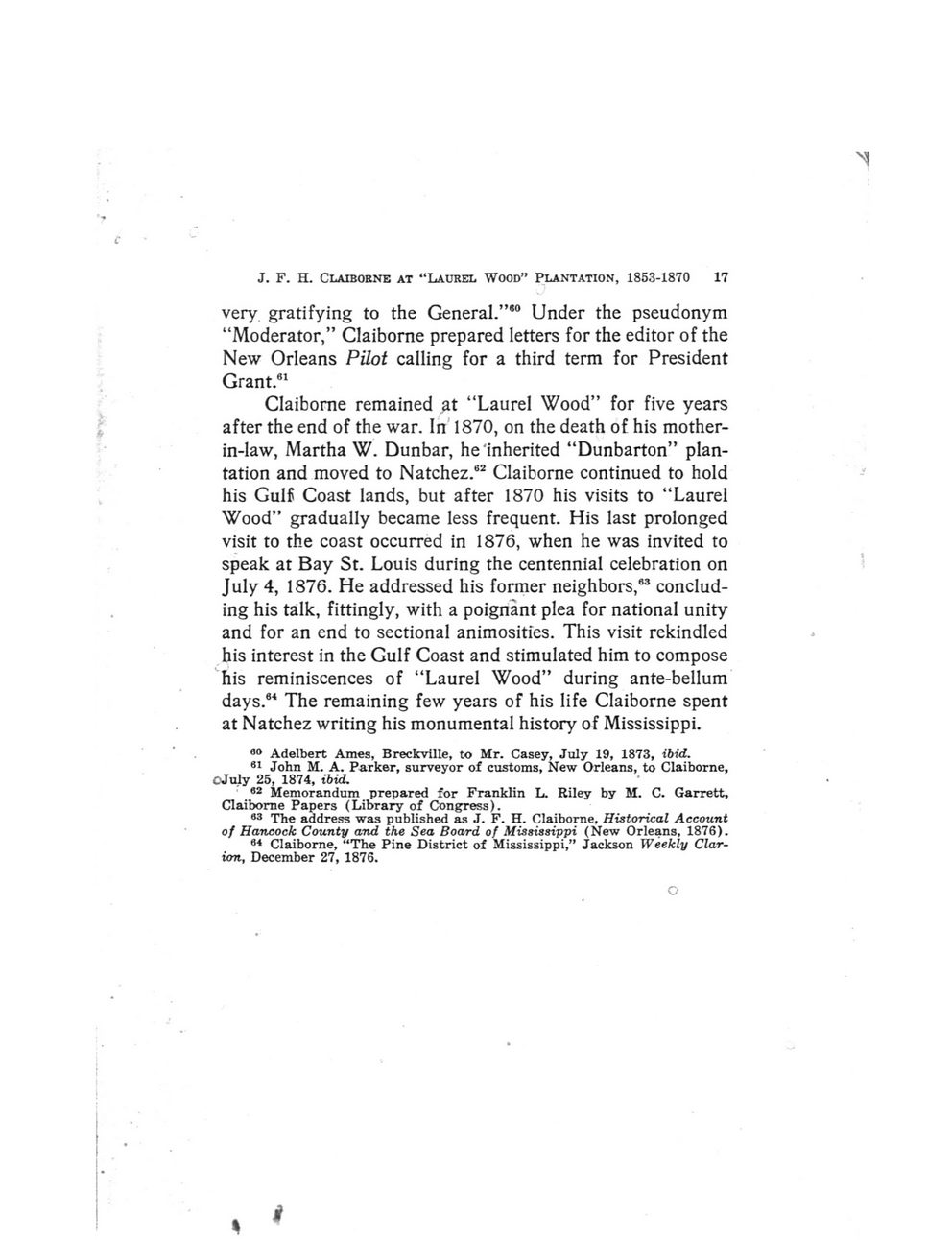This text was obtained via automated optical character recognition.
It has not been edited and may therefore contain several errors.
J. F. H. Claiborne at ?Laurel Wood? Plantation, 1853-1870 17 very gratifying to the General.?60 Under the pseudonym ?Moderator,? Claiborne prepared letters for the editor of the New Orleans Pilot calling for a third term for President Grant.61 Claiborne remained at ?Laurel Wood? for five years after the end of the war. In? 1870, on the death of his mother-in-law, Martha W. Dunbar, he?inherited ?Dunbarton? plantation and moved to Natchez.62 Claiborne continued to hold his Gulf Coast lands, but after 1870 his visits to ?Laurel Wood? gradually became less frequent. His last prolonged visit to the coast occurred in 1876, when he was invited to speak at Bay St. Louis during the centennial celebration on July 4, 1876. He addressed his former neighbors,63 concluding his talk, fittingly, with a poignant plea for national unity and for an end to sectional animosities. This visit rekindled his interest in the Gulf Coast and stimulated him to compose "his reminiscences of ?Laurel Wood? during ante-bellum days.64 The remaining few years of his life Claiborne spent at Natchez writing his monumental history of Mississippi. 60 Adelbert Ames, Breckville, to Mr. Casey, July 19, 1873, ibid. 81 John M. A. Parker, surveyor of customs, New Orleans, to Claiborne, oJuly 25, 1874, ibid. 62 Memorandum prepared for Franklin L. Riley by M. C. Garrett, Claiborne Papers (Library of Congress). 83 The address was published as J. F. H. Claiborne, Historical Account of Hancock County and the Sea Board of Mississippi (New Orleans, 1876). 84 Claiborne, ?The Pine District of Mississippi,? Jackson Weekly Clarion, December 27, 1876. O

Claiborne, J.F.H Claiborne-J.F.H-057